


APR - JUN 2022 ISSUE 42
“YOU ARE THE PEOPLE WHO ARE TO BRING ABOUT A REVOLUTION.”
(Hazrat Mirza Masroor Ahmad, Khalifatul Masih VMay Allah be his HelperVirtual Mulaqat with Waaqifaat-e-Nau Lajna UK, 15th May 2022)
Waqifaat-e-Nau must bring about a spiritual revolution: Lajna Waqifaat-eNau UK meet Hazrat Khalifatul Masih VMay Allah Strengthen his hand
Islam
Fatihah
by Hazrat Mirza Nasir
Khalifatul Masih IIIrh |
Convention
5th October
Tarbiyyat
Hazrat Hudas | Recommended reading from the National Waqfe Nau Syllabus

O er sacrifices for Allah as Abrahamas and his family did | Extract from the address delivered by Hazrat Khalifatul Masih Vaba on Eid-ul-Adha sermon, 10th July 2022
Waqf in Africa – My Journey So Far | Naila Fowad
Sympathy and compassion for Friends | Extract from the third address of the Promised Messiahas at the Annual Convention on 30th December 1897
of
CONTENTS APRIL JUNE 2022 | ISSUE 42 03. The Holy Qur’an 04. Hadith 05. Writings of the Promised Messiahas 06.
15. Poem:
is my Religion |
Gha ar 16. Quote
Ahmad,
At the Annual
UK,
1980 18. Behind the Scenes of a Maryam Magazine Issue 22. Kids’ Spread 26.
Page 29.
34.
36.
43.
44. The Story
Two Brothers Maryam | 1
The Holy Qur’an teaches us that in order to become an exemplary person, one must
obligations due to Allah ‘Huqooq Ullah’ and also the rights of His creations ‘Huqooq-ulIbaad’. Allah the Almighty has enjoined believers at every step to honour the rights of His creation. In fact, He has said that until we are grateful to our fellow people, we cannot be grateful to God.
In his address during the fnal session of Jalsa Salana UK 2021 Hazrat Mirza Masroor Ahmad, Khalifatul Masih V (May Allah Strengthen his hand) said:
“Islam teaches to honour friendship for the sake of God. Any other friendship is merely temporary, whereas a friendship for the sake of God carries a frm and strong bond, which is beyond mere friendship and can therefore be sustained. This also increases the love with which friends treat one another. The Holy Prophetsaw said that anyone who prays for their brother when they are not present, angels pray for the same to be accepted in favour of the supplicant. Brothers here include friends as well. This is the manner in which Islam has fostered love between friends. Islam also teaches that friends should not be upset with each other and refrain from speaking with one another for more than three days. Furthermore, Islam teaches that one should also uphold the friendships of their parents, even after they have passed away, thus establishing the honour of friendships for generations.
The Holy Qur’an lays great importance in upholding the rights of relatives and maintaining good relations with them. The Holy prophetsaw said that those who do not take care of their relatives will not enter heaven.”
May Allah enable us all to follow the beautiful teaching of Islam and enable us to follow the guidance of our beloved Hazuraba. Ameen.
In this issue of Maryam Magazine our readers can enjoy articles including ‘Virtual Class of Lajna Waaqifaat-e-Nau’, ‘Behind the Scenes: Timeline of a Maryam Magazine Issue’ and ‘Waqf in the Field: Waqf in Africa – My Journey So Far’.
Hïñå Åhmëdï
ENGLISH
CHIEF EDITOR
Zanubia Ahmad
ASSISTANT CHIEF EDITORS
Dure Jamal Mala Nayla Muzamil
ENGLISH EDITOR Hina Ahmedi
ENGLISH SUB-EDITOR
Hamooda Arif
EDITORIAL BOARD
Sabah Un Noor Tahir Hibba-Tul Mussawir Maleeha Mansur Meliha Hayat Salma Manahil Malik Mashel Chaudhry Samina Yasmeen Arif Amatul Wakeel Maha Sameera Mirza Kashifa Qamar Safna Nabeel Maham
COVER DESIGN
Zara Tahir Ahmad
PAGE DESIGN & SETTING
Soumbal Qureshi
Naeema Amjad
Atiyya Wasee
Naila Fowad
Hina Farooqi Zara Tahir Ahmad
PRINTED UNDER THE CENTRAL OFFICE WAQF-E-NAU
MANAGER
Luqman Ahmad Kishwar
Raqeem Press, Tilford UK
PRINTERS
EDITOR Do you have any comments, suggestions or want your article featured in our next edition? Email us at: chiefeditor@maryammagazine.org
From the Editor...
discharge the rights and
Maryam | 2
Translation: And worship Allah and associate naught with Him, and show kindness to parents, and to kindred, and orphans, and the needy, and to the neighbour that is a kinsman and the neighbour that is a stranger, and the companion by your side, and the wayfarer, and those whom your right hands possess. Surely, Allah loves not the proud and the boastful. (English translation by Hazrat Maulvi Sher Ali sahibra)
The Holy Qur’an Kind Treatment towards Mankind یبرقلا یذبو اناسحا نیدلاولابو ائیش ہب اوکرشت لو � اودبعاو بحاصلاو بنجلا راجلاو یبرقلا یذ راجلاو نیکسلاو یمتیلاو نبا و بنجلاببحی ل � نا مکنامیا تکلم امو لیبسلاناک نم روخف لاتخما (Al-Nisa:37) Maryam | 3
(Muslim, Kitab ul Iman, Bab Bayan ul iman)
Translation: Abu Ayub Khalid ibn Zaid Ansarira relates that a man said: ‘Messenger of Allah, tell me that which will cause me to be admitted to Paradise’. Hesaw answered: ‘Worship Allah and do not associate anything with Him: observe Prayer; pay the Zakat and join the ties of kinship’ (Bokhari and Muslim).
(No.333, Gardens of the Righteous, p.76)
Hadith (Sayings of The Holy Prophet) On Strengthening the Ties of Kinship (May Peace and Blessings of Allah be upon Him) یبا نعا وي بہنع ا ی ضر، لجر نایبنلل لاق صل ا ىعلي ہو سل م: ا نربخ یبعمی نلخدیل ةنجلا:لاق:ا دبعتلهب كرشتائيش،ميقتو ل صلا ۃوا يتؤتو زلكومحرلا لصتو۔ Maryam | 4
Writings of the Promised Messiahas
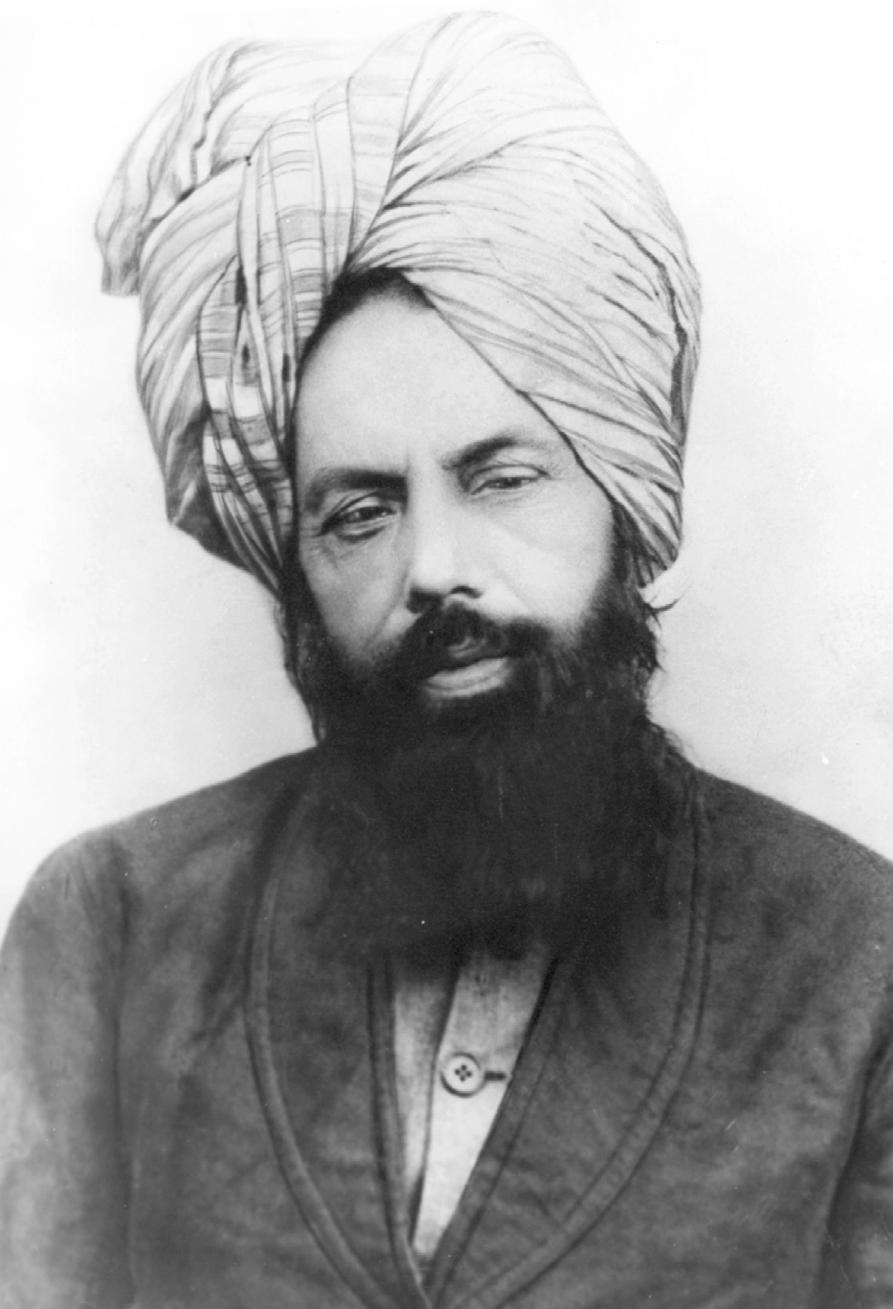
HASTEN TO FORGIVE YOUR BRETHREN THEIR SINS
Hasten to make peace with one another and forgive your brethren their sins. For he who is not inclined to make peace with his brother is wicked and will be cut off, because he is the cause of dissension. Part with your ego in every way and do away with mutual grievances. Be humble like the guilty, though truth be on your side, so that you may be forgiven. Do not feed your vanity, for those who are bloated cannot enter the gate to which you have been called. How unfortunate is the one who does not believe in that which has come from the mouth of God and which I have set forth.
If you desire that God should be pleased with you in heaven, unite with one another as though you were brothers from the same womb. The one who most forgives the transgressions of his brother is the more honourable among you. Unfortunate is the one who is obstinate and does not forgive. Such a person has no part in me. Be very fearful of God’s curse, for He is Holy and Jealous. An evildoer cannot attain nearness to God… Have mercy on your subordinates and your wives and your less fortunate brethren so that you too may be shown mercy in heaven.
The Promised Messiah (as), Noah’s Ark [Tilford, Surrey: Islam International Publications Ltd., 2018], 21,22
Maryam | 5
Waqifaat-e-Nau
about
On 15 May 2022, Lajna members of Waqf-e-Nau UK were given the opportunity to meet Hazrat Mirza Masroor Ahmad, Khalifatul Masih Vaba through a virtual class. The waqifaat-e-nau had gathered in Baitul Futuh Mosque, London.
Observing the great number of Lajna members seated in Baitul Futuh, Hazuraba said, “It seems Lajna members from all over the UK have come together instead of just the waqifaat-e-nau” Hazuraba was informed that all the Lajna members seated were waqifaat-e-nau. Alluding to the vast number of waqifaat-e-nau members, Hazrat Amirul Momineenaba said that a revolution must be brought about in the UK through their efforts.

must bring
a spiritual revolution: Lajna
Waqifaat-e-Nau UK
meet Hazrat Khalifatul
Masih
V aba (Report prepared by Al Hakam https://www.alhakam.org/lajna-uk-waqifaat-meet-huzoor) Maryam | 6
Hazuraba then called Mariah Rana Sahiba to recite a portion from the Holy Qur’an. After the recitation, Sabah Un Noor Sahiba presented the Urdu and English translations. Then, Sameena Ahmad Sahiba presented a hadith. Following this, Dania Ahmad presented an extract from the writings of the Promised Messiahas after which Kashifa Qamar Sahiba recited a poem.
Hazrat Khalifatul Masih Vaba asked Kashifa Sahiba what her profession was. She replied that she was working as a pharmacist in a hospital. Hazuraba then asked Dania Sahiba, Sameena Sahiba, Sabah Un Noor Sahiba and Mariah Sahiba about their professions and studies.
Dania Sahiba replied that she was currently in her last year studying biomedical science. Sameena Sahiba said that she had, some years ago, attained a degree in Arabic and French. Sabah Un Noor Sahiba said she was serving as the Urdu editor for the Maryam magazine. Mariah Sahiba replied that she was currently doing her GCSEs. Thereafter, the waqifaat-e-nau had the opportunity to ask Hazrat Amirul Momineenaba any questions they had.
Sofa Muhammad Sahiba, from Mosque East Jama’at, said that although Islam was our religion, some people desired to merge their culture and their religion. She asked what one should do to return to religion as opposed to culture and tradition.
Hazrat Khalifatul Masih Vaba answered that our religion was Islam. Through the Holy Qur’an, sunnah and hadith we learned about Islam, and the Holy Prophetsaw explained Islam to Muslims by following the commandments of the Holy Qur’an. The Holy

Maryam | 7
Prophetsaw explained some things through his actions or instructions which were also found in the ahadith.
Being Muslim and adhering to Islam fundamentally was to “establish a relationship with Allah the Almighty, to worship Him and to fulfl His rights. The second thing was to fulfl the rights of one another and the rights of mankind,” Hazuraba said. Hazrat Khalifatul Masih Vaba explained that some aspects had taken root among certain Muslims that stemmed from cultural practices and not Islamic teachings. Some South Asians, due to the infuence of Sikhism and Hinduism, adopted some of their cultural traditions, for example in marriage ceremonies. Hazuraba said that Allah taught Muslims that the nikah announcement was the declaration of marriage. However, some had adopted other traditions. It was not necessary to hold separate extravagant functions for mehndi and shadi, etc. In Islam, Hazuraba reiterated, there was the nikah announcement and walima.
There were so many Muslims around the world from different continents who all had their own traditions. Hazuraba added, “That which clashes with the commandments of God must be abandoned.”
The main aspect, Hazuraba emphasised, was that traditions that people adhered to should not become a means of committing shirk – associating partners with Allah. “The fundamental teaching is to establish the sanctity of Allah the Almighty and not to commit shirk.”
Hazrat Amirul Momineenaba added that there were some good things in different cultures which could be adopted if they did not contradict with the teachings of Islam.
Shamama Dogar Sahiba, from Bournemouth Jama’at, presented a verse of Surah Yunus in which Allah says, “And We spoke to Moses and his brother, saying, ‘Take, ye twain, some houses for your people in the town, and make your houses to face one another,
“When you become happy, I am also happy, and then I also wave my hand back. What you feel is also what I feel. [In such gatherings, I see] that good people are seated [before me], sincere Ahmadis are seated, loving Ahmadis are seated, loyal Ahmadis of Khilafat are seated. This is what I feel.”
Maryam | 8
and observe Prayer. And give glad tidings to the believers.’” She said that Hazrat Khalifatul Masih IVrh, in the commentary of this verse, had stated that the study of archaeology proved the houses of the Israelites were facing their qibla. She said Hazrat Khalifatul Masih IIra had taken the verse to mean that their houses should face each other. She asked Hazuraba whether, considering the commentary of Hazrat Khalifatul Masih IVrh, Masjid Aqsa could be taken to mean the qibla referred to and if Allah gave Masjid Aqsa the rank of the frst qibla.

Hazrat Amirul Momineenaba frst explained that Muslims used to face Masjid Aqsa during prayers. Allah had later instructed the Holy Prophetsaw to turn his face towards the Holy Ka‘bah, and this had been mentioned in the Holy Qur’an.
Hazuraba further explained that as far as Hazrat Khalifatul Masih II’sra interpretation was concerned, that interpretation was given according to the knowledge available at his time and he explained that it could mean the houses should be facing each other to create unity and unite them by the bonds of brotherhood. However, through archaeology, it was found that the houses were facing Masjid Aqsa and thus Hazrat Khalifatul Masih IVrh had noted this in his interpretation of the verse.
“The Holy Qur’an is such a treasure of knowledge that in every age, as more research is conducted, new things will be discovered. Many matters are expounded upon, explained and interpreted accordingly,” Hazuraba said.
Maryam | 9
Hazuraba highlighted again that Hazrat Khalifatul Masih IIra, according to the circumstances at the time and the knowledge available in that era, explained this accordingly. And Hazrat Khalifatul Masih IVrh explained the matter accordingly also. Qaanita Faheem Sahiba, from Putney Heath Jama’at, asked Hazuraba how he felt when Ahmadi Muslims waved at him during ijtemas, jalsas and gatherings.
Hazrat Amirul Momineenaba answered: “When you become happy, I am also happy, and then I also wave my hand back. What you feel is also what I feel. [In such gatherings, I see] that good people are seated [before me], sincere Ahmadis are seated, loving Ahmadis are seated, loyal Ahmadis of Khilafat are seated. This is what I feel.”
Rofa Mubashar Sahiba, studying at the Aisha academy in London, asked Hazuraba to what extent one should make compromises in a relationship to avoid quarrels and disputes, and when to give priority to their self-respect.
Hazuraba explained that there were many types of relationships such as siblings, parents, uncles and aunts, husband and wife, in-laws, etc. Every relation, Hazuraba said, had a different nature. As far as parents were concerned, they should be respected at all times unless they called one towards shirk or drive one away from religion. And this, Hazuraba said, was a commandment of the Holy Qur’an. Regarding siblings, even if one must give up their right to establish peace with their brothers and sisters, they should do so. Islam commanded to take care of the rights of others. Thirdly, Hazuraba said, as far as relations with relatives and uncles and cousins were concerned, as they were elders, they should be shown respect. Greet them well, and treat them with good manners; these are high morals.
As for the relationship between a mother-in-law and daughter-in-law, there should also be a level of respect.
“It is the teaching of Islam to consider each other’s feelings and emotions,” Hazuraba said.
Hazrat Khalifatul Masih Vaba said that the Holy Qur’an stated that even if enemies were treated with respect, they eventually would become friends.
Anam Ahmedi Sahiba stated that history showed that the way people used to dress according to their gender had changed and she gave the example of the ancient Egyptians, where men usually used make-up and it was considered a symbol of their masculinity and wealth; however, now it was considered against the norm. She said that it was mentioned in a hadith that the Holy Prophetsaw said that in the Latter Days, men would start dressing as women and women would dress like men. She asked how this hadith could be interpreted in modern times.
Maryam | 10
Hazuraba answered, referring to her statement, that it could not be generalised that men used to try to beautify themselves and wear makeup. There were some traditions of old tribes that used to wear special make-up in special festivals they used to have, and in the same way, women also used to wear make-up and wear dresses. Hazuraba added that ancient tribes, such as the Aborigines of Australia and tribes of other countries, all had their own customs and traditions; and so too did the tribes of Arabia. But to say that the men, in general, wore what women wore and became like women, was wrong. Masculinity was the sign of men. Therefore, the Holy Prophetsaw had said that a man should appear like a man. The Holy Prophetsaw had said that there would come a time when it would be diffcult to recognise and differentiate between men and women, meaning that preferences and priorities would change.
Hazuraba said that now, the custom of changing genders had been created. When such a custom was formed, everyone’s opinion also changed and the environment seemed to affect people; a girl would say that she wanted to be a boy and vice versa.
The Holy Prophetsaw said that there should be a visible difference between a man and a woman. When such situations changed and mankind moved away from the natural order and created disorder, Allah the Almighty sent His messengers for the betterment of the world. And in this age, the Promised Messiahas has been sent to teach people and draw them back to the right path.
The Promised Messiahas said that he was sent for two purposes: one was to unite man with God and the other was to offer the rights one owed to other human beings. Naima Clarke Sahiba, from Islamabad Jama’at, said that sometimes the family of blessed people of Allah, such as prophets, khulafa, martyrs and the righteous, despite receiving prayers and seeing good examples before them, deviated from the right path. She asked why this happened.
Hazrat Amirul Momineenaba said: “To each belong their own deeds. Prophet Noah’sas son did not believe, so Allah the Almighty punished him and he drowned. […]
The Holy Prophetsaw had said that there would come a time when it would be difficult to recognise and differentiate between men and women, meaning that preferences and priorities would change.
Maryam | 11
The Promised Messiahas has written, and it is found in a hadith which I have cited in my previous sermon, that the Holy Prophetsaw said, ‘Fatima, do not think that because you are the daughter of the Prophet, you will be forgiven. Your own actions will lead you to forgiveness. […]

“Thus, the prophets and righteous people set good examples; however, if one does not follow their example, does not walk [on the path they have set], one is obstinate or stubborn by nature and does not inculcate the advice even after seeing the example, then the law of Allah the Almighty is set in motion. Allah does not see whether so or so is the son or daughter of a good man. Then, Allah looks at what their own actions are and whether ‘they have followed My teachings or not’. And if they have not, then they are punished in this world or the next, Allah the Almighty knows best.”
Hazuraba added, “If they are wise human beings, they take heed from others; [and] after seeing good examples, begin to act upon them.”
Hazuraba highlighted that it depended on the individual. Hazuraba said that it was not compulsory for a righteous person’s offspring to be noble. “Yes, they are generally good; however”, if one treaded towards bad things, they would eventually become engulfed in bad deeds.
Maryam | 12
Mashal Chaudhry Sahiba, from Baitul Futuh South Jama’at, said that nowadays, it was commonly seen that when a person gave their opinion on a subject, such as religion, which was contrary to popular trends, people began to ostracise such individuals. With such conditions, people tended not to express their views and agreed with what the norm was. She asked what Hazur’saba advice was for waqifaat-e-nau on this matter. Hazrat Amirul Momineenaba said, alluding to what he mentioned at the beginning of the mulaqat, that Lajna waqifaat-e-nau were to bring about a revolution. One should not be affected by such infuences. Hazuraba explained that when Allah sent a prophet, He sent him at a time when people had become corrupt. When the Holy Prophetsaw was sent by Allah, people were corrupt everywhere. Christians and Jews also believed, Hazuraba said, that that time was extremely immoral as people were distant from religion. Allah sent the Holy Prophetsaw to bring people back to religion. Then, after 1,300 years had elapsed, corruption crept in. Muslims and people of other religions lost their ways, Hazuraba explained. Nowadays, 65% of people did not believe in God. In this age, Allah had sent the Promised Messiahas according to His promise and had enabled us to accept him.
So, Hazuraba added, as people moved away from religion, they would make fun of religion; not only religion, but also the prophets. Hazuraba said that some people violated the sanctity of the Holy Qur’an and mocked Islam. Similarly, other countries saw Islam in the wrong light. Hazrat Amirul Momineenaba said that some actions and wrong types of traditions adopted by Muslims were also being made fun of. In such a situation, Hazuraba said:
“It is we, Ahmadis, who must inform people of the correct Islamic teachings. If we have exemplary conduct, good morals and possess knowledge on world matters, then people will listen to us.”
Hazuraba said, “We must neither fear nor stop [our work in spreading the true Islam].”
“It is we, Ahmadis, who must inform people of the correct Islamic teachings. If we have exemplary conduct, good morals and possess knowledge on world matters, then people will listen to us.”
Maryam | 13
Hazuraba said that by our deeds, good morals and knowledge – which one must continue to increase – we should preach to people. Hazuraba highlighted that above all, one must supplicate and bow before Allah the Almighty for help. We should strive to fulfl the promise we have made and lead the world on the right path. Aliya Sadaf Sahiba, from Hayes Jama’at, asked Hazrat Amirul Momineenaba about veganism and diet.
Hazuraba said that the teaching of Islam prescribed a balanced approach. It does not say to eat meat only, nor does it say to eat only vegetables. Both kinds of foods should be consumed. A balanced diet should be eaten and it was nutritionally proven that a balanced diet fulflled the needs of the human body.
Hazrat Khalifatul Masihaba then conveyed his salaam to everyone and the mulaqat came to a close.

“Hazuraba said that the teaching of Islam prescribed a balanced approach.”
Maryam | 14
ISLAM MY RELIGION ISLAM MY PEACEFUL RELIGION HOW CAN MY RELIGION BE CALLED VIOLENT, WHEN ITS NAME ITSELF IS THE OPPOSITE OF THAT? FAR FROM VIOLENCE IT IS MY RELIGION ISLAM, HOW BEAUTIFUL AND GENTLE ITS TEACHINGS ARE, IF ONLY YOU COULD SEE ISLAM THE WAY I SEE AND LIVE IT. I WONDER IF YOU WOULD STILL THINK OF VIOLENCE WHEN ITS NAME IS MENTIONED. ISLAM, A 5-LETTER WORD THE SAME AS PEACE, WHICH IS WHAT IT IS ‘PEACE!!!’ ISLAM THE RELIGION OF PEACE.
Fatihah Ghaffar
Maryam | 15
IhavestudiedtheHolyQur’anhundredsoftimesduring mylifewithagreatamountofdeliberation.Thereisnot asingleverseinitwhichteachesustodistinguishbetween aMuslimandanon-Musliminworldlymatters…The Holy Prophetsaw and his companions had won people’s hearts with love, devotion and compassion. If we want toconquerpeople’sheartsthenwetooshallhavetofollow intheirfootsteps.TheteachingoftheHolyQur’ancan besummarisedasloveforall,hatredfornone.Thisalone isthewaytowinhearts.Thereisnowayotherthanthis.
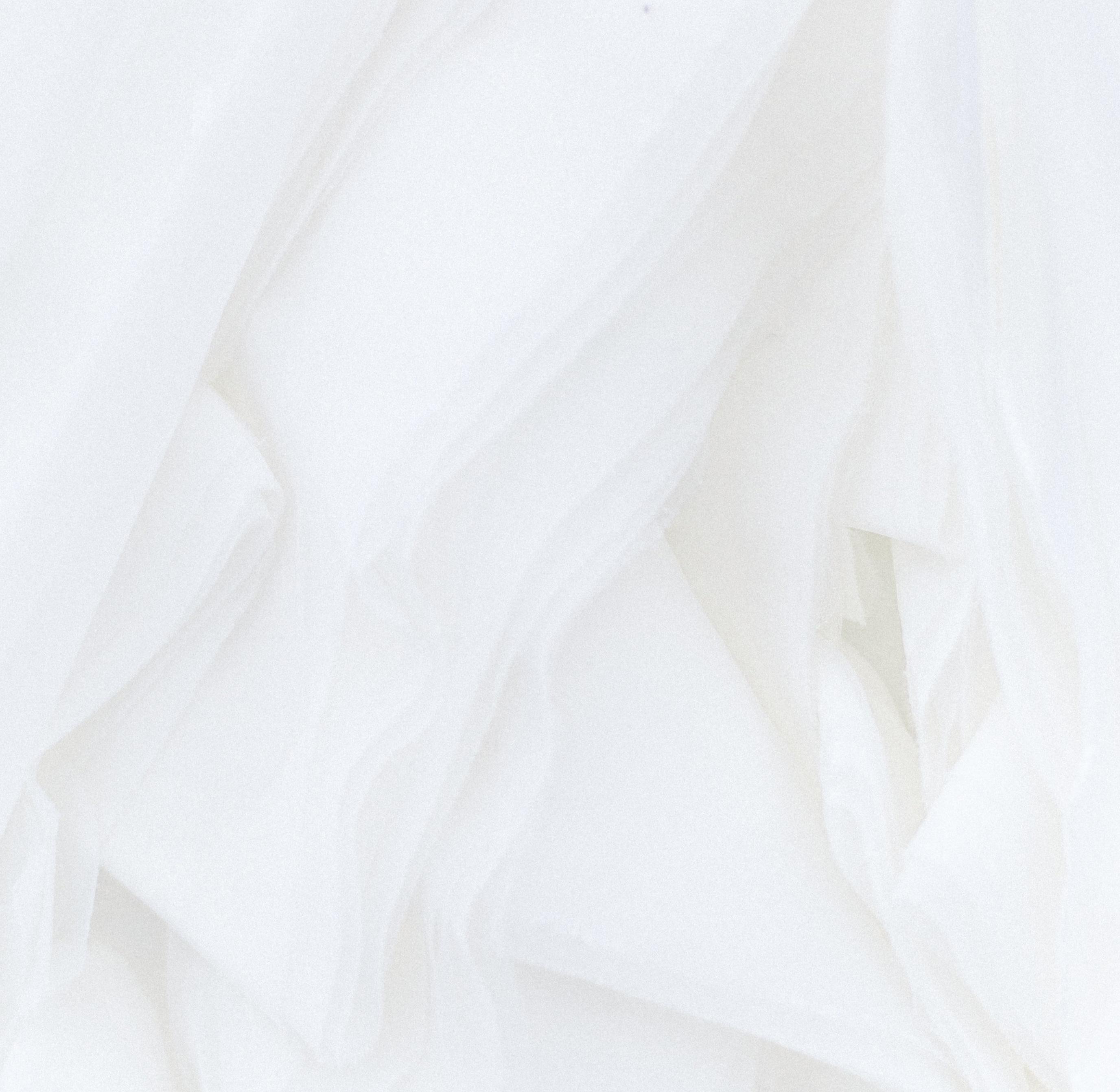
“ “
Hazrat Mirza Nasir Ahmad, Khalifatul Masih IIIrh Annual Convention UK, 5 October 1980
Maryam | 16

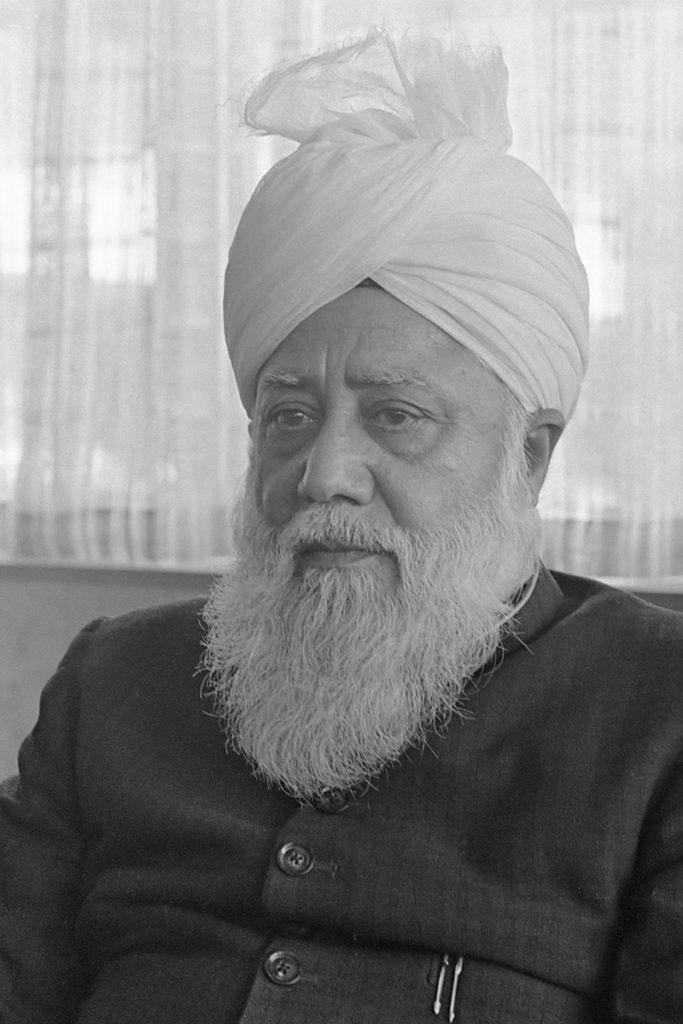 Hazrat Mirza Nasir Ahmad, Khalifatul Masih IIIrh
Maryam
Hazrat Mirza Nasir Ahmad, Khalifatul Masih IIIrh
Maryam
| 17
Timeline: BTS Maryam Magazine Issue
What happens behind the scenes of publishing an issue of Maryam Magazine
Editorial Team Meeting: pick a topic/theme and decide on a colour palette for the issue

Editors/Subeditors contact potential writers with article ideas, titles and first draft deadlines

Designers are informed of the colour palette and theme and asked to design a cover accordingly
Writer sends the article
Editors and Subeditors go through articleidentify any changes or edits required




Send back to author to make edits
Writer sends back final draft of article











Editors/Subeditors send article to 2 board members to proofread article
Board members send back article with edits after proofreading
Maryam | 18
Editors/Subeditors implement edits
Editors and Subeditors decide on suitable designer and send article to design
File is sent to designers to design






Designer identifies the article type and the target audience to set the tone and layout for that particular article

Designers take into consideration the number of pages the article will be designed on
Designers then also have a look at whether any images have been provided with the article
Otherwise designers choose appropriate images, illustrations or design elements according to the colour palette
If required, Illustrations or backgrounds are created and designed

Fonts are chosen carefully keeping in mind the tone and mood of the article
Once the initial planning of an article is completed, the actual designing of the article begins



An Indesign file is created, page layout, including number of pages and bleed is added












Any design elements or backgrounds are imported to the design file and are arranged accordingly

Maryam | 19
Text from the article is imported to the design file and a layout is created using grids












Design elements, illustrations and backgrounds are edited if required, to achieve legibility



Text is changed to the chosen font and font size, then it is arranged and aligned
Images or illustrations are imported and placed at the appropriate places, aligning with the text
Final design of the file is reviewed and checked for readability, overall visual hierarchy and balance

The text is then rearranged by emphasising the titles, highlighting subtitles and making use of paragraphs
Designed file text is checked against the actual text file for any errors


Editors and Subeditors examine the designed files for any errors that may have occured in the design process

Designed files are exported to PDF files, including exporting bleed and crop marks




Designed files are sent to Editors

Send back to designer with edits & Designer sends final edited file back
Final PDF sent to a member of the board group to check
Maryam | 20
Editors mark article as ‘ready to publish’ once PDF has been checked















Designers send their designed covers to editorial team
Chief Editor sends each designed cover for approval and selection

Editorial team decide on the final contents of the issue
Editor collates all final files that are ready to publish


Head designer compiles both English and Urdu files to form the issue
Editors and Subeditors do a final check of the compiled issue
Chief Editor announces approved cover
Chief Editor sends final approved cover and compiled issue to the Central Waqfe Nau team ready to be published
Maryam | 21
Kid’s Spread
Kind treatment of one’s relatives and respecting one’s elders
In a Friday sermon delivered on 23rd January 2004, beloved Hazuraba reminded us about the importance of being kind to relatives and parents.
Hazuraba beautifully explained the rule of establishing a harmonious society is to be _______ and _______ to those around us.
By following these high moral standards, a person achieves the true status of a good _______ and receives Allah’s blessings.
It is the responsibility of each Ahmadi to be the frst in extending the hand of friendship and in mediating conficts.
Hazuraba reminded us of the time when the Holy Prophetsaw claimed prophethood and his own relatives turned against him. Despite the animosity, the Prophetsaw continued to fulfl his obligations towards them.
Hazuraba mentioned that when the Promised Messiahas found out that one of his enemies, Mirza Nizam Din, was sick, he visited him and prescribed medicine for him, which cured him of his ______. Such is the example laid out for us to follow.
Hazuraba reminded us of a piece of advice that the Holy Prophetsaw gave to one of his companions. He said: Always look towards someone who is fnancially less privileged than you so that you can count your ______; always love the poor and the weak; and always fulfl the rights and obligations towards your relatives even if they are unsympathetic towards you’.
Maryam | 22
The Holy Prophetsaw also said that if you give charity to a poor man, you are only rewarded for your kind deed of charity. But if you give charity to a poor relative, you are ______ rewarded; once for your kind act of charity, and once for fulflling a duty towards your relative.
The Promised Messiahas explains that by being kind, we will attain peace and comfort of our heart and soul.
In conclusion, Hazuraba said that if you want kindness from Allah, you must be kind towards ______.
Answers
Kind Compassionate Muslim Illness Blessings Doubly Others
https://www.alislam.org/friday-sermon/2004-01-23.html
did
How
you do? Maryam | 23
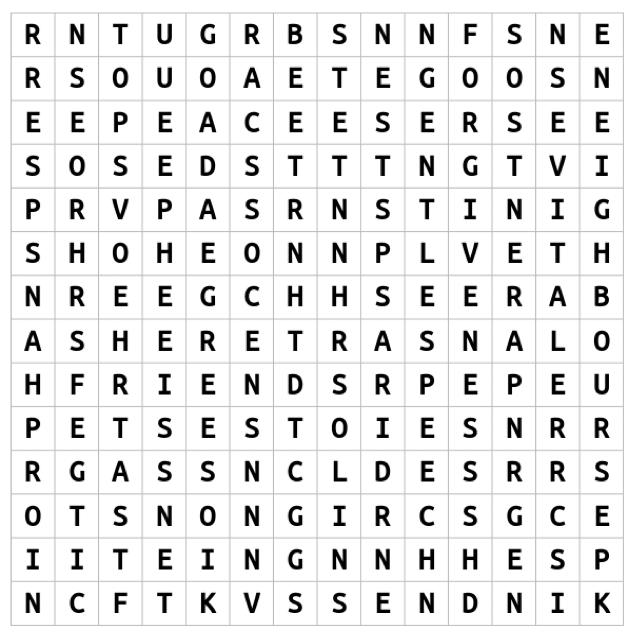
Wordsearch Kindness Gentle Speech Friends Peace Respect Forgiveness Neighbours Orphans Relatives Parents Maryam | 24
Narrated by Hadrat Abdullah Ibn Amrra: The Prophetsaw of Allah said: “One who has no compassion for our young ones and does not recognise the rights of our elders is not of us.”
(Sunan Abu Dawud, Book of Manners, Chapter: Mercy)
Read and memorise this Hadith about one’s treatment of relatives. You can make a poster of the Hadith and display it in your room to help you always remember it! Hazrat Mirza Bashir Ahmad(ra) (M.A.) explains that:
“It must be borne in mind that the expression “younger ones and elder ones” in this Hadith applies to all, whether they are junior or senior in point of age, or relationship, or wealth, or offce, or prestige, or infuence. In whatever respect that the difference exists, every senior is required to treat his junior with compassion and consideration, and every junior is required to show due respect and regard to his senior. And whoso does not behave in that manner, our Mastersaw says about him that he is not of us.”
https://www.alislam.org/library/books/Forty-Gems-of-Beauty.pdf
Task
Maryam | 25
In the prayer recited by Hazrat Maryam’s mother, the word ار ّ رحم has been used which means that ‘this child has been relieved from all worldly responsibilities and she prayed that religious responsibilities should solely become its priority.’ Therefore, frst and foremost, I would like to say to all such mothers and fathers that a mere title of ‘Waqf-e-Nau’ is not enough. In fact, Waqf carries a great responsibility which until the adolescent years lies with the parents but then after that it is the responsibility of the Waqf-e-Nau children themselves. Some boys and girls, who have acquired secular education initially appear to show a lot of passion and offer their services.
However, some cases have come to light where some of them have left the scheme because they could not live by the allowance that the Jama’at gave to them. If one wants to achieve a great objective, then one has to encounter diffculties and make sacrifces. Thus, this concept should be engrained in the minds of the Waaqfeen-e-Nau from childhood that there is nothing greater than devoting one’s life. Instead of judging others by worldly measures and thinking that though such and such class fellow of mine has acquired the same level of education as I have, yet he is earning hundreds and thousands, while my monthly income does not equate to anywhere near his income of a single day. Instead they should think that the status God Almighty has granted them is far greater than any material wealth.
One should always keep in mind the saying of the Holy Prophetsaw that ‘in terms of worldly material means, one should always look at those who are less fortunate than them and in respect to spirituality, one should always look at those who are superior than them, so that instead of competing with one another in worldly gains, one should vie with one another in matters of spirituality.’ (Bukhari, Kitab-ul-Riqaaq, Hadith no 6490)
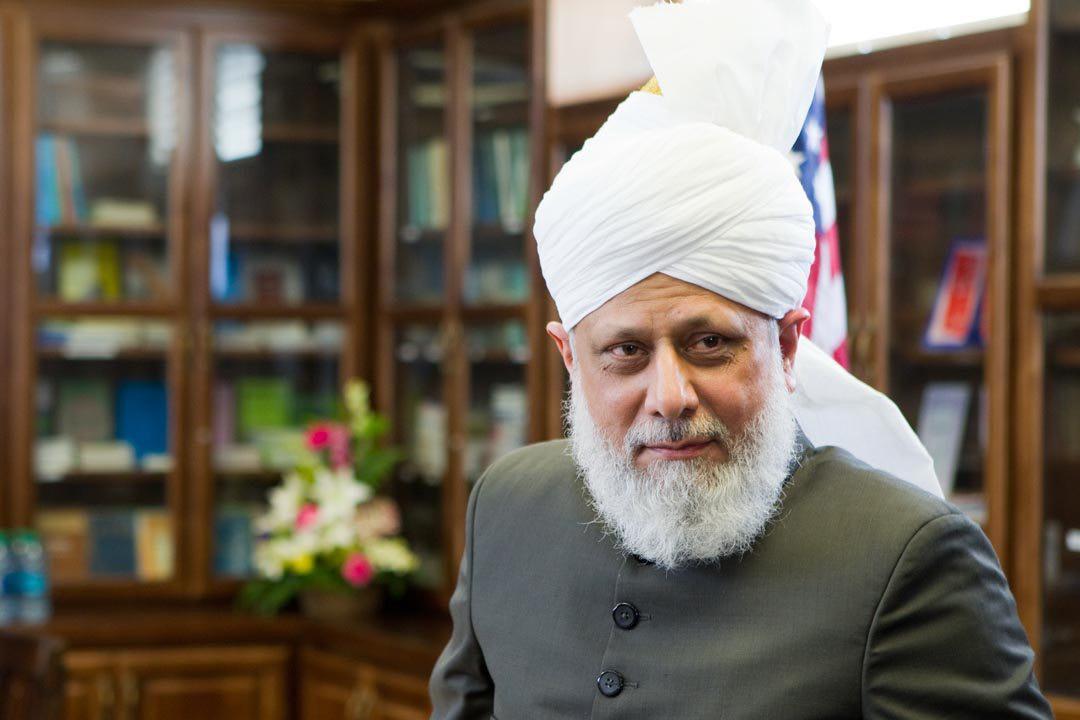
The title of ‘Waqf-e-Nau’ is not enough. In fact, Waqf carries a great responsibility
TARBIYYAT PAGE
Maryam | 26
Waqifeen-e-Nau must raise their levels of contentment and their levels of sacrifces. They should never orry that if e are not strong fnancially, then perhaps our brothers and sisters may consider us inferior,’ or that our parents may not give us the same attention they give to others.’ irstly, parents should never entertain the belief that life devotees are inferior in any ay. In their vie the status and rank of a devotee of life should be e traordinary.
o ever, the devotee of life should become the most humble person on earth. hilst the Waqifeen-e-Nau should raise their levels of sacrifce, at the same time they must raise the level of their orship and also their level of loyalty. They should use all of their abilities and capacities to fulfl their covenant and the oath of their parents. They should endeavour to serve their faith and make every effort for the elevation of their faith. In such a case, od lmighty re ards abundantly and does not leave anyone short of recompense. In regards to fulflling one’s covenants ith sincerity, on one occasion the Promised Messiahas stated or this very reason, od lmighty praised a rat Ibrahimas in the oly ur’an here it states ّ ّ ا ار braham as the one ho fulflled the covenant he made. ura l ajm
Thus, this is the standard for absorbing the love of od lmighty and beseeching his race hich the romised Messiahas e plained to us and e pected from us. ot only should all Waaqfeen-e-Nau endeavour to achieve this standard, but all those ho have devoted their lives should do this as ell. ntil their sacrifces reach such a level, all the claims of our life devotees ill only be superfcial and mere statements. ome mothers have said that e have come to settle in anada, and our son is a missionary or devotee of life serving in akistan. e
The devotee of life should become the most humble person on earth
Every devotee should remember that until the levels of sacrifces are not raised to a high standard, all the claims of our life devotion will only be superfcial
Maryam | 27
re uest for you to reassign him here and call him here, so he may be ith us.’ hen one has dedicated their life, ho can there be any demands o can there be such desires ll desires should have come to an end.
s I mentioned earlier, the tendency to include children into the Waqf-e-Nau cheme is gro ing and this is an e cellent trend. This trend should increase in a manner that e sincerely turn to ards od lmighty. It should not be the case that ith the changing of situations our covenants eaken or break. The romised essiahas stated that ithout enduring pain or ithout diffculty it is impossible to offer sacrifce. If the circumstances have changed, then e must endure it. specially those ho have presented themselves for the service of faith or those parents ho have dedicated their children and then the children have rene ed their promises by stating that they ish to continue ith their pledge. The Promised Messiahas states that hen man is prepared to offer every sacrifce for the sake of od, then od lmighty re ards him and does not hold anything back, re arding him abundantly. ay od lmighty enable the Waqifeen-e-Nau and their parents to fulfl their pledges keeping the true essence of sacrifce in mind and may they raise their standards of loyalty and sincerity to ever increasing ne heights.
I ill no brie y e plain some administrative matters and ould like to dra attention to ards the guidelines for the Waqifeen life devotees . ften people ask various uestions. ome Waqifeen-e-Nau have certain misconceptions that since they are Waqf-e-Nau, they have their o n separate identity. lthough they may have a separate identity, ho ever they should not e pect any special treatment, in fact, given their separate identity they must ensure that they raise their levels of sacrifce. ome people embed in the minds of young Waqf-e-Nau children that they are special. onse uently, hen they gro up all that is in their minds is that they are special. ere in anada I have received information to this effect as ell as other uestions of similar nature. These hinder one from the true essence of devotion and they think the mere title of being a Waqf-e-Nau is their sole purpose in life and consider that they are something e ceptional.
riday ermon delivered by a rat ir a asroor hmad, halifatul asih ay llah be his elper on th of ctober in Toronto anada
Maryam | 28
Hazrat Hudas
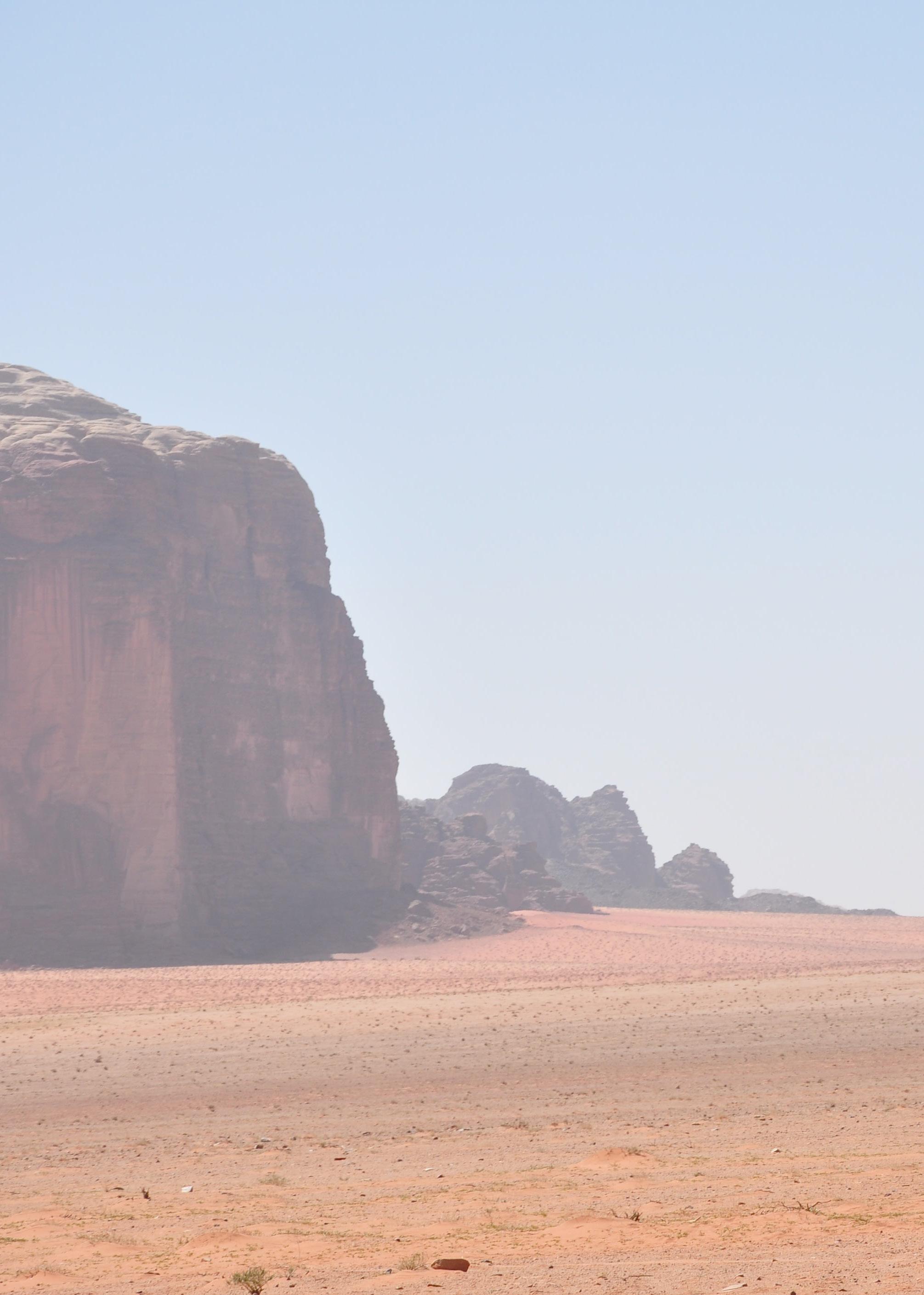
Maryam | 29
Descendant
Hazrat Hudas was the name of the prophet who was sent to the tribe ‘Ad. He was seventh in decent from Noahas 1
The ‘Ad tribe
The tribe of ‘Ad, at one time, ruled over most of the fertile parts of greater Arabia, particularly Yemen, Syria and Mesopotamia. They were the frst people to exercise dominion over practically the whole of Arabia. They are known as ‘Adanil ‘Ula.2
The ‘Ad tribe lived immediately after the people of Noahas. The territory in which these people lived is called Ahqaf, which, literally means meandering and zigzag sand-hills.
The powerful people of ‘Ad
The Adites were powerful and cultured people. They had made great progress in science in their time. They built fortresses, palatial buildings and great reservoirs. They had their summer residences, their factories and mechanical works. They were specially advanced in architecture. They invented new weapons and implements of war and erected great monuments. In short, like the present-day nations of the west, they possessed all the complicated paraphernalia of a highly advanced civilization. They made great strides in knowledge but they ignored the one supreme lesson of history; that nations derive their real strength not from material things but from high ideals and good morals. As they became morally corrupt and spiritually depraved and turned a deaf ear to the warning of their Prophet to mend their ways, so they fell a victim to that terrible doom which is the inevitable lot of those who ignore Divine warning.3
Hazrat Hudas sent as a Prophet to ref m the people of ‘Ad
“And to ‘Ad We sent their brother Hud. He said, ‘O my people, worship Allah alone. You have no God beside Him. You are but forgers of lies. O my people, I do not ask of you any
Maryam | 30
reward therefor. My reward is not due except from Him Who created me. Will you not then understand? And O my people, ask forgiveness of your Lord, then turn to Him, He will send over you clouds pouring down abundant rain, and will add strength to your strength. And turn not away sinners.’”4
The allegation of disbelievers
“They said, ‘O Hud, thou hast not brought us any clear proof, and we are not going to forsake our gods merely because of thy saying, nor are we going to believe in thee. We can only say that some of our gods have visited thee with evil…’” 5 Hazrat Hud’sas opponents misunderstood his exhortations and thought that his real object was not to preach the truth but to gain mastery over them. So they replied by saying that they would not forsake their idols for him and would not obey him. In fact, they falsely proclaimed that their gods have afficted Hazrat Hud’sas mental powers.
Calling Allah to witness
“He replied, ‘Surely, I call Allah to witness, and do ye also bear witness that I am clear of that which you associate as partners with God. Beside Him. So devise plans against me, all of you, and give me no respite.”6 These words, constitute a strong reply to the allegation of disbelievers and condemned all their false gods and evil practices. Hazrat Hudas calls Allah to witness, as the people of ‘Ad have refused to listen to reason.
The grave warning
“I have indeed put my trust in Allah, my Lord and your Lord. There is no creature that moves on the earth but He holds it by the forelock. Surely, my Lord stands on the straight path. If then, you turn away, I have already conveyed to you that with which I have been sent to you, and my Lord will make another people take your place. And you cannot harm Him at all. Surely, my Lord is Guardian over all things.”7 Hazrat Hudas warns the people that no harm can be inficted upon him as he is the message bearer, nor would rejecting the message harm God, for He is All-Powerful. So, the only people who can come to grief by the rejection of the Message are those who reject it. If the people to whom it is originally addressed do not accept it, some other people will accept it and it will make them prosper. The Divine Message can never go in vain.
Maryam | 31
Refusing the mighty power
“As for ‘Ad, they behaved arrogantly in the earth without any justifcation and said, ‘Who is mightier than we in power?’ Do they not see that Allah, Who created them, is mightier than they in power? Still they continued to deny Our Signs.”8
The self -inflicted curse on the people of ‘Ad

“Behold! The tribe of ‘Ad behaved ungratefully to their Lord. Behold! Cursed are ‘Ad, the people of Hud!”9 Certainly, how perverse and ungrateful were the ‘Ad as they refused to listen to the voice of their Lord, Who brought them into being and then nourished and sustained them. Nobility of character demanded that they should have been grateful to Him, but by rejecting His Message, they set the seal not only on their ingratitude but also on their folly, because they consigned to oblivion the patent fact that He Who gave them greatness and glory could also degrade and debase them.
The Punishment
“Then, when they saw it coming towards their valleys as a cloud, they said, ‘This is a cloud which will give us rain’. ‘Nay, but it is that which you sought to hasten — a wind wherein is a grievous punishment. ‘It will destroy everything by the command of its Lord.’ And they became such that there was nothing left to be seen, except their dwellings. Thus do We requite the guilty people.”10 As a result of their rejection of Prophet Hudas, and their wicked and immoral deeds, they were destroyed by a violent wind which continued to lash them for seven consecutive days, burying their chief cities under heaps of sand and dust.
Maryam | 32
The wipeout of a powerful tribe
“It will destroy everything by the command of its Lord.’ And they became such that there was naught left to be seen, except their dwellings. Thus do We requite the guilty people.… And We did destroy townships round about you; and We have varied the Signs, that they might turn to Us.”11 The tribe of ‘Ad was so completely destroyed that it seemed that they had never existed and only the ruined remnants of their once lofty and strongly-built dwellings could be seen.
References
1 The Holy Quran, Hazrat Mirza Bashir-ud-Din Mahmood Ahmad, Khalifatul-Masih IIra English 5 Vol Commentary, Surah Al-A’raf 7: Verse 66
2 The Holy Quran, Hazrat Mirza Bashir-ud-Din Mahmood Ahmad, Khalifatul-Masih IIra English 5 Vol Commentary, Surah Al-Ahqaf 46: Verse 22
3 The Holy Quran, Hazrat Mirza Bashir-ud-Din Mahmood Ahmad, Khalifatul-Masih IIra English 5 Vol Commentary, Surah Ash-Shu’ara’ 26: Verse 130
4 The Holy Quran, Hazrat Mirza Bashir-ud-Din Mahmood Ahmad, Khalifatul-Masih IIra English 5 Vol Commentary, Surah Hud 11: Verse 51-53
5 The Holy Quran, Hazrat Mirza Bashir-ud-Din Mahmood Ahmad, Khalifatul-Masih IIra English 5 Vol Commentary, Surah Hud 11: Verse 54-55
6 The Holy Quran, Hazrat Mirza Bashir-ud-Din Mahmood Ahmad, Khalifatul-Masih IIra English 5 Vol Commentary, Surah Hud 11: Verse 55-56
7 The Holy Quran, Hazrat Mirza Bashir-ud-Din Mahmood Ahmad, Khalifatul-Masih IIra English 5 Vol Commentary, Surah Hud 11: Verse 57-58
8 The Holy Quran, Hazrat Mirza Bashir-ud-Din Mahmood Ahmad, Khalifatul-Masih IIra English 5 Vol Commentary, Surah Ha Mim As-Sajda 41: Verse 16
9 The Holy Quran, Hazrat Mirza Bashir-ud-Din Mahmood Ahmad, Khalifatul-Masih IIra English 5 Vol Commentary, Surah Hud 11: Verse 61

10 The Holy Quran, Hazrat Mirza Bashir-ud-Din Mahmood Ahmad, Khalifatul-Masih IIra English 5 Vol Commentary, Surah Al-Ahqaf 46: Verse 25-26
11 The Holy Quran, Hazrat Mirza Bashir-ud-Din Mahmood Ahmad, Khalifatul-Masih IIra English 5 Vol Commentary, Surah Al-Ahqaf 46: Verse 26, 28
Maryam | 33
Offer sacrifces for Allah as Abrahamas and his family did
On 10th July 2022, Hazrat Khalifatul Masih VMay Allah be his Helper delivered his Eid-ul-Adha sermon in Islamabad, Tilford.
Hazuraba said: “With reference to Eid-ul-Adha, I would also like to briefy address a question that is frequently asked in mulaqats – in virtual mulaqats as well as personal mulaqats –regarding the tarbiyat of waqifeen-e-nau and how to go about it. I have answered this in numerous places in my sermons and addresses. However, I wish to briefy speak and draw your attention to this.
“It is a huge grace and favour of God Almighty that upon the call of Hazrat Khalifatul Masih IVrh, parents replied with ‘Labbaik’ and dedicated girls and boys for this scheme – they are doing so currently and will continue to do so, Insha’Allah. This example shall remain so long as an example of sincerity and loyalty remains within the Jama’at – so long as sincere members of the Jama’at look up to the example of:
“ ‘And Abraham who fulflled the commandments ’ ; so long as the system of hilafat is in the Jama’at – and this shall remain until the end of time – the practise of dedicating children for the sake of Allah shall also remain, Insha’Allah.

“However, the parents who are dedicating, or have dedicated their children’s lives for the sake of serving faith, should remember that waqf demands a sacrifce. What is the standard of this sacrifce? It is the standard of sacrifce as displayed by Hazrat Abrahamas and Hazrat Ishmaelas. When Hazrat Abrahamas said to his son, ‘I saw myself slaughtering you in a dream’, and asked the son, ‘What is your intention?’ the son, whose tarbiyat was done by saintly parents who were infused with taqwa, replied, ‘ ulfl your dream. You will fnd me of the patient and those who offer sacrifce.’
“Thus, parents should have this in mind at the point of dedicating their children that ‘We are presenting our children, therefore their tarbiyat should be done in such a way, and we ought to pray for them, so that our children may answer in keeping with the tradition of Ishmaelas.’
یفو
یذلا میہ ربا و
Maryam | 34
“Parents should not merely sacrifce their children in a temporary state of passion or by imitating others; they should refect and ask themselves, ‘Are we able to bring our children up in a way that refects the response of Hazrat Ishmaelas?’ This can only happen when parents’ own example is such that can attain the highest standards of piety and taqwa. Otherwise, children grow up and respond by saying, ‘You dedicated us for waqf, but we are not ready for this. We cannot serve the Jama’at live off a small allowance. We cannot work with such and such limitations. Therefore, we cannot dedicate our lives.’
“Even if parents’ intentions are pure at the time of dedicating their children’s lives, if their practical and spiritual states are weak and they cannot positively play a role in their children’s tarbiyat, then the children can never be ready for such a sacrifce.
“Therefore, in this way, the parents of waqifeen-e-nau, or those parents who wish to dedicate the lives of their children, should refect and ask themselves whether they can achieve such a standard.
“Similarly, if the children who have grown and are now fulflling their waqf should be concerned about one thing, then it should be how they can excel in their standard of loyalty and sacrifce, and not how they can manage their household expenses. Have complete trust in Allah and excel in taqwa – Allah always fulfls one’s needs. The waqifeen-e-nau who are currently serving the Jama’at should look to adopt the attributes of Ishmaelas. Only then will Allah provide them with ways of prosperity and success.


“May Allah grant the parents the ability to perform their duty and may He grant Waqf-eNau children the ability to understand their duties related to waqf, to rely solely upon Allah and to offer sacrifces for the sake of faith. Having excelled in studies, may they not be those who turn to and indulge in the world; rather, may they be those who give precedence to their faith, fulfl their oath of waqf and sincerely offer their services. May Allah give them the ability to do so.”
https://www.alhakam.org/eid-ul-adha-sermon-2022/
Maryam | 35
Waqf in Africa –My Journey So Far
 By Naila Fowad
By Naila Fowad
My name is Naila - me, my husband and my two children, Zubdah, who’s six years old, and cheeky little Jawad who recently turned one, have been posted to serve in Africa as waqfe Zindagis. Our journey in Africa started in 2018 when my daughter was two and a half. We were sent to Nigeria as teachers under the Nusrat Jehan Scheme, a scheme founded by Hazrat Khalifatul Massih IIIra which aims to provide welfare and beneft to the world, especially in education and healthcare in developing parts of the world.
In our frst mulaqat with Hazuraba after the posting, upon hearing of our posting to Nigeria, beloved Hazuraba advised, “Mushkil jaga behj diya hai”, meaning it is a diffcult place that you have been sent. It certainly was not any different, but we tried our best to do justice to what our beloved Hazuraba had asked us of us. Our transition to Africa was by far not easy, but we truly have seen the blessings of Waqf. This is a brief insight into our journey.
Food and lifestyle challenges
The city of Kano in sub-Saharan Africa soon became our new home. A very hot place where temperatures reach 46-48 degrees Celsius. A place where the electricity supply is totally unpredictable. It would come and go, sometimes for a few hours, a few days or even weeks! Without a generator, car, Wi-Fi, what did I do all day? I cooked, cleaned, and played with my daughter.
Due to the heat, I would always make fresh food. Our fridge would never get cold enough to refrigerate. The freezer was useful - we used it as the fridge! I learned to cut meat and blanche vegetables so that they would last a few days before cooking. We
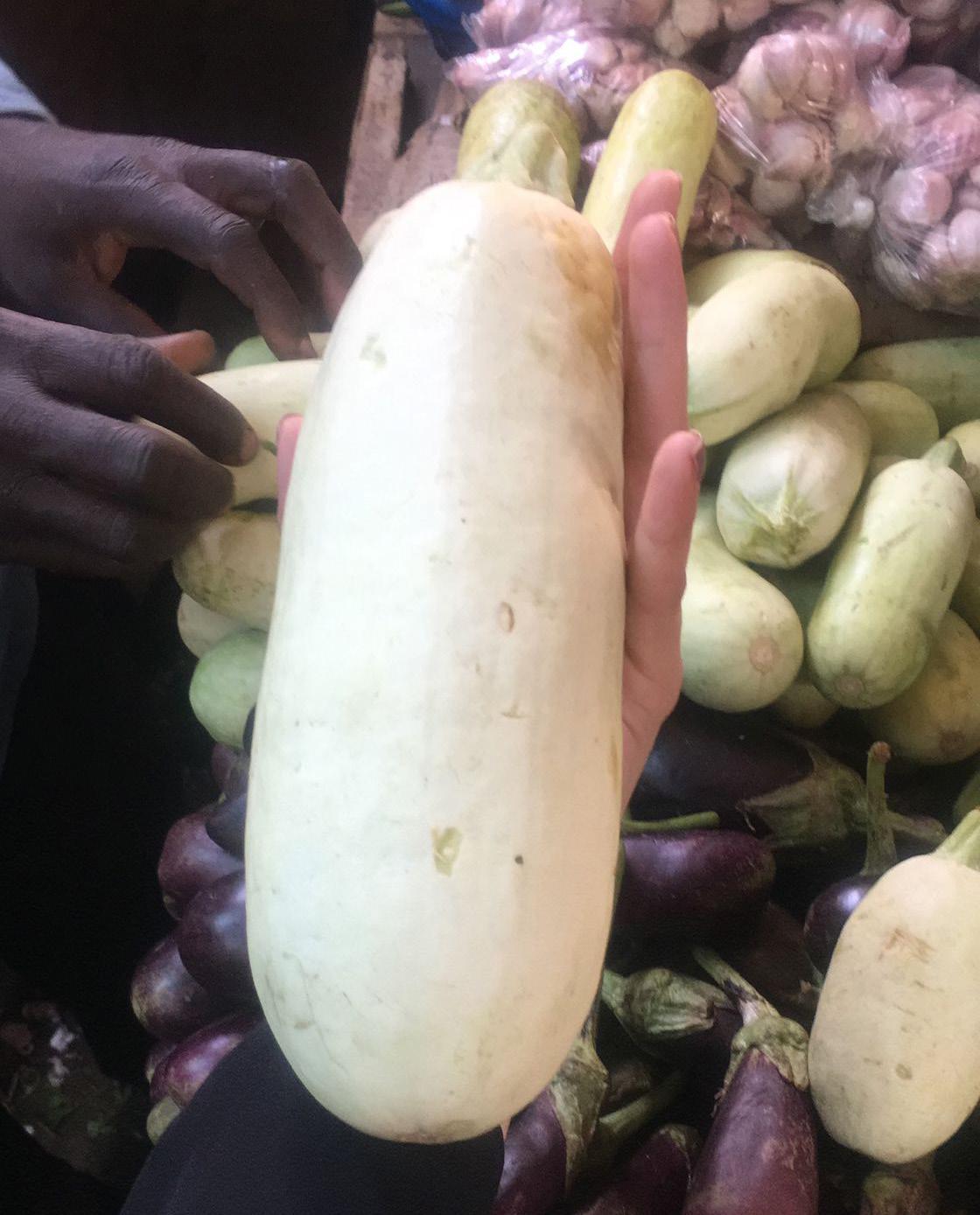
Maryam | 36
had many organic vegetables, such as okra, bitter gourd, turnip and aubergine. Life wasn’t the easiest but when is it? I remember one hot evening I sat in the living room upset and disgruntled but I looked up at the picture of beloved Hazuraba in our living room smiling at me, giving me the peace of mind that it was okay - this was my comfort zone.
We always hear about stories of revered companions of the Promised Messiahas and pious individuals receiving food when there was nothing at home. Who knew that I was to experience something similar of the sort. One evening, we returned home after a long journey. There was nothing at home, perhaps not even an onion. Suddenly a stranger knocked on the door. You wouldn’t believe it! Warm aloo gosht (potatoes and meat curry), chana pulao (chickpea rice), salad, raita (cucumber and yoghurt), pasta and fruit! The person who sent it sent me a message that, “I sent some ration for you knowing you just returned and there must be nothing at home –including onions, oil, tomatoes.” So, Allah indeed provides for His servants especially in times of diffculty.
Another challenge we faced was the concept of a public restroom. I remember once I drank some juice which may have gone off, while on a journey I urgently needed a bathroom. We found a place with a local toilet - the ones without a commode. Well after closing the metal door with no lock, I instantly realised there was no light. It was pitch black! I could hear something that sounded like rats or lizards scattering across the ceiling, I don’t know what it was. Something that was a stark contrast to what we have back in the UK!
My next thought was about Apa Jaan, when once she mentioned how in the early mornings she needed to go out of the room and it was dark, she couldn’t even see if there were any dangerous insects or scorpions in her shoes! As she is my inspiration and someone I look up to, it gave me courage and strength to also persevere in this situation and to stay strong.
When I visited the UK for the frst time since moving to Nigeria, I would startle when using the tap as I had forgotten what warm water felt like or that warm water comes through a tap. I realised the differences of living in the UK and living in Nigeria. I did not need to worry about ironing or charging my phone before the electricity goes out, to spray the house with mosquito repellent, to sleep in the mosquito net, or make fresh yoghurt. Yes, I even learned to make my own fresh yoghurt!
I can recall many such incidents, but all I have to say to my fellow Waqfate Nau around the world is, when the time comes, adhere to beloved Hazur’saba exact instructions and always fulfl the purpose and pledge your parents made with upmost dignity and loyalty. Allah will always be by your side, Insha’Allah. I’m often asked how do I cope mentally? To be honest, I really don’t think about my previous life in the UK, or the things I had there. I just think I’m here now and I need to make it work. A few tweaks and adjustments to life and it works out for the better Alhamdolillah.
Friendship
When I learnt that we were going to Africa for Waqf, I prayed that Allah Almighty guides us, enables us to make beloved Hazuraba proud and for me to fnd a person who will guide me and help me with how to live in Africa. Alhamdolillah, I found this person. A friend, and a sister, called Afa
Maryam | 37
Qanwel Butt. She is the daughter of a Murabbi who lived three hours away from our house. She was always there for me from the beginning. In diffcult times and happy times, she always gave me the right advice - for this I will always be grateful to her and her family. Her father, Naseem Butt Sahib, really became a father fgure for us in the land of Africa. Her mother is named on my phone as “Nigerian Mum”, because she really became a mother to me. When I was down or missing home without a second thought, I knew I could go to their house and they would treat me as their daughter and my children as their own. We are so close that some people in Nigeria would ask, “How are you related?”. So, Allah provides for you by every means possible and in ways you can’t even imagine, just as I found people who became my family forever within a blink of an eye. May Allah bless her and her family abundantly.
Car
After 10 months, we decided to get a car. There were many hurdles but I would pray, “O, Allah you brought us here and You are our Provider and I leave it all down to You.” It’s really not easy fnding a car in Nigeria, or in Africa in general. Everyone would give up hope upon hearing of our budget, especially given that we were looking for a car which had been imported from a foreign country. Many people opt for imported cars as local used cars have a lot of issues, many parts are taken out and replaced. Then, one morning we received a call from Murabbi Butt Sahib telling us that one of the car dealers we contacted had got back to him and said, “There is this one car that is standing and it’s in your price range and it’s recently been imported”. The car fnally came, and every single person was surprised, if not astounded. Once again, we witnessed the fact that Allah provides for His servants in miraculous ways. The car was a black Peugeot 307, 2002 model, nothing extravagant, but for us it was like a shiny new Mercedes. I still remember sitting in the car with AC and driving down the same roads we used to stand and wait in the heat for the tricycle (rickshaw) with my husband and then three and a half year old daughter. All I had to say was Alhamdolillah, repeatedly. Just like this, days and months passed. Beloved Hazuraba was praying and our faith was only becoming stronger with every hurdle we faced.
Safety and Health Obstacles
Early in our waqf journey, my husband and the local Murabbi Sahib were attacked by machete wielding thugs in broad daylight very close to home. They were on the side of the road buying chicken. While they were waiting for the butcher to fnish preparing it, suddenly, a political rally happened to pass by. The road was full of people and suddenly 7 or 8 armed thugs appeared. They cornered my husband and Murabbi Sahib trying to rob them of their personal belongings. One of the thugs raised his machete ready to strike my husband when suddenly, they saw money scattered on the foor which fell from Murabbi Sahib’s pocket. As soon as their attention was on the money, my husband saw an opportunity to run away from them and by Allah’s grace they both fed unharmed. This experience did not deter us in the slightest, in fact it made us stronger in our faith to carry on, because it was only Allah who saved us from certain calamity. Not even for a split second did we question our waqf.
Recently my daughter was ill, and the doctors didn’t really know what was wrong with her but her blood platelets were extremely low and her fever wasn’t going. The symptoms seemed to be a case of dengue fever. Her platelets were so low that the doctors were confused as to why she was not bleeding externally or internally, they kept on repeating these words. Little did I know I was part of a miracle itself. Within
Maryam | 38
a few hours of informing beloved Hazuraba and requesting for prayers, her platelets were back to normal levels. She was up and playing like her usual self, Alhamdolillah. I knew it was only our beloved Hazur’saba prayers and Allah’s fazl (grace), nothing else.
Teaching
All my time and life in Africa, I always pondered over beloved Hazur’saba life in Africa. How beloved Hazuraba didn’t even have what we had in Nigeria. Beloved Hazuraba instructed me in a mulaqat to start teaching in the Ahmadiyya primary school. This was a nice experience. It was a school like I had never seen before. I would like to recall an incident when it was raining and the metal window shutters were closed, so it was quite dark in the classroom. My instinct to fick a switch to make it bright kicked in before reality hit that there was no switch, no bulb, and no electricity! This was just a simple classroom with a few wooden benches and a blackboard. I remember once teaching the children the different weather seasons and I asked the class if they know what snow looks like. On this, one of the students put her hand up and said, “Yes aunty I know, it’s the white stuff which you see when you open the freezer”. This will always leave an imprint on my life as it just makes you realise there is a simpler world. In the West, we are obsessed with the latest clothes, electronics and monetary earnings. Does that really matter when you don’t have inner peace and contentment?
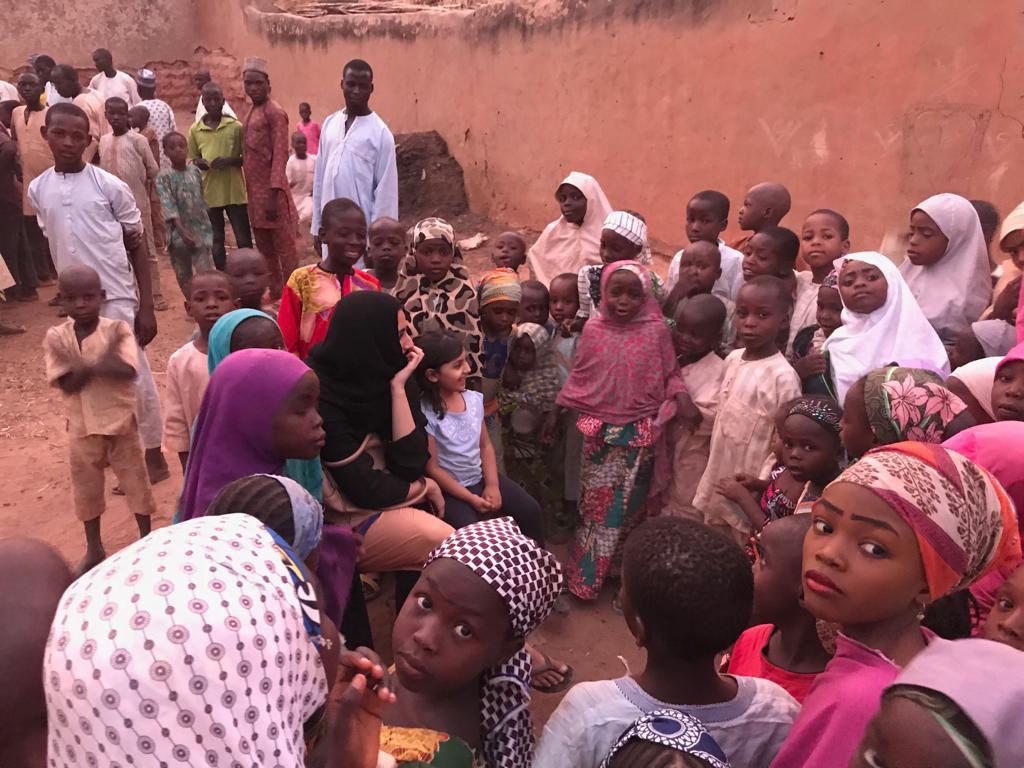
Raising a family
By the grace of Allah, my son was born in the UK in June 2020, however, due to the Covid-19 Pandemic my husband couldn’t visit until he was 4 months old. Many people would express their amazement and describe this as the ultimate sacrifce. However,
Maryam | 39
my husband would always say that at least I saw him on video calls and found out instantly when he was born. Beloved Hazuraba only knew of the birth of his daughter through the Al Fazl newspaper, quite some time after her birth. In waqf, we have been taught to look at Allah’s fazl (grace), at what He has given us and be grateful for it. There lies the ultimate key to contentment.
As a mother you may wonder how I took my children back to Africa? Well, there is no answer to this because my beloved Hazuraba has asked me to serve here. That’s my peace. Of course, I worry for my children, but don’t all children get ill in the UK and other countries too? If a doctor can treat a patient, it is only by Allah’s grace that a doctor is able to diagnose and treat an illness.
When I returned to Nigeria with my baby who at the time was 7 months old, the local African Ahmadis would come to my house and hold my baby boy. It was during the height of the Covid-19 Pandemic, and I couldn’t say no, I never wished to upset anyone or do anything which would indicate that I am showing arrogance or disrespect.
On this note, I would like to relate an incident Apa Jaan narrated in a mulaqat regarding when she lived in Ghana. She mentioned there was once a certain disease in Ghana and the hostel girls nearby would come to their house to drink water using their glass. She would not refuse them; she would let them use it and wash the glass afterwards and read Darood Shareef.
Remembering this incident, I also did the same; recited Darood Shareef and left it in Allah’s hands.
On another occasion, Hazuraba mentioned that during his time in Ghana, cows would roam near his house early in the mornings and it would wake him up as there were no walls or barriers to stop them from entering the vicinity of his house. I could also relate to this when the chickens or the goats would come to our window at 5 or 6am in the morning. This was because my husband would always feed them. Once a goat even tried to get into the house! They would always sit outside our door and start bleating loudly, that’s when my husband thought “ok maybe i’m being a bit too generous!”
On numerous occasions we are asked, “Why don’t you return to the UK? You’ve done your part of the sacrifce. It’s been great, but think about your kids.” My answer always has been and will be, “I have inner peace, contentment and satisfaction. Alhamdolillah”. In one of my mulaqats with beloved Hazuraba I mentioned how I miss him dearly. Beloved Hazur’saba said, do miss him but also carry on doing the work he has sent us to do.
Move to Ghana
By the grace of Allah, beloved Hazuraba sent us on a new chapter in our journey in Africa recently, which is our posting to Ghana. Even though our life was very simple in Nigeria, I loved every part of it. Somehow it was less stressful in the worldly aspect. Yet, as strange as it sounds, the struggles only made me at peace, that I’m doing this for a better purpose.
Alhamdolillah, we had everything in our eyes. My house consisted of 2 bedrooms, a kitchen, a bathroom and living room but it never felt small. When cleaning in the heat it would feel like it was too big! In Ghana, currently the house we live in consists of 3 bedrooms,
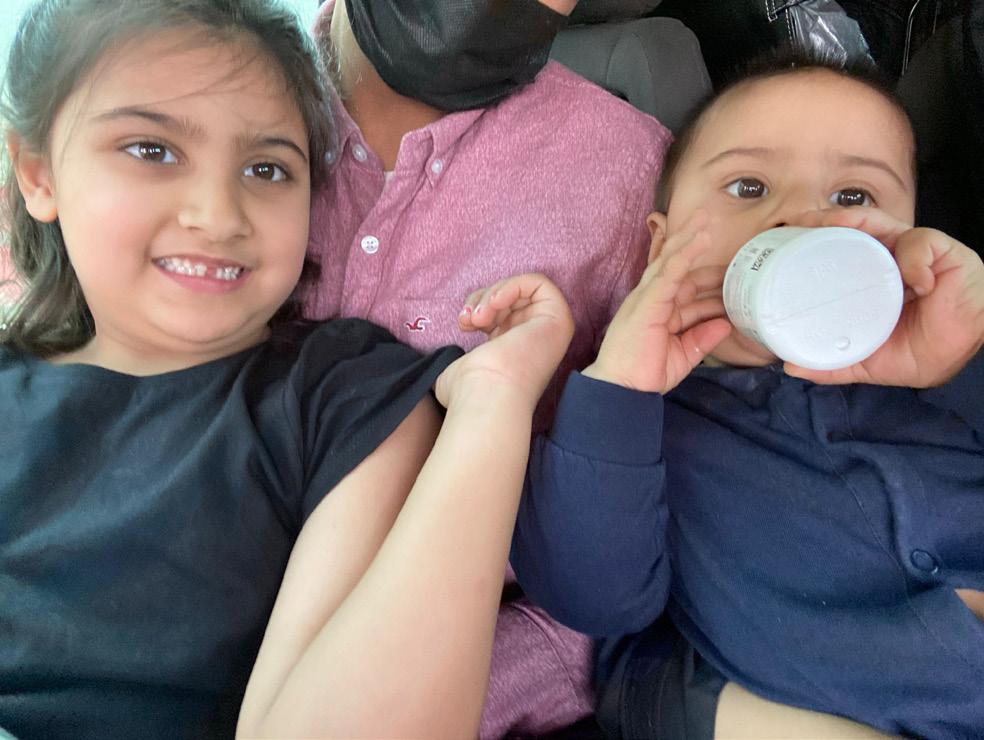
Maryam | 40
a living room, 3 bathrooms and a kitchen, but the irony is that I miss my home in Nigeria!
We miss Nigeria because life was simpler, and it was everything. Ghana is a blessing in disguise, because to some extent life is a bit more luxurious. My children can watch TV, and we have Wi-Fi now, so it feels not very different to our lives in the UK. A new adventure with different hurdles but I wouldn’t say a struggle. Just as beloved Hazuraba said in a recent virtual mulaqat when he was asked about any hardships in his life, “if I say that I faced any hardship, that means I did not understand the spirit of my Waqf... I never faced any hardship. I always saw Allah’s fazl (grace) on me.” 1
Now if you asked me, If I had a choice to choose Ghana or Nigeria, what would I choose? -I would choose whatever my beloved Hazuraba chooses for me. Nigeria has a special place in our hearts because it was our frst posting and it trained me in a way that I don’t think Ghana would be able to.
I feel our time in Nigeria really made us strong physically, spiritually, and mentally. Just as a seed is sown into the ground, it is surrounded in darkness, and it needs to struggle for some time before it breaks through the surface to become strong. The same way we were like a seed sown in Nigeria, we had to stay strong and persevere to grow stronger with time. Alhamdolillah we were able to withstand the challenges we faced and with beloved Hazur’saba prayers we were able to become stronger.
Here in Ghana, it is nice. We are based in Accra; the electricity is drastically better. My daughter studies in the Ahmadiyya school and, as any mother would, I worry because of the heat and that maybe I should send her to a better private school. But then again, Allah answered once again, when she recently achieved 7th position in her class having only joined two months prior. So again, all I can say is Alhamdolillah.
In Ghana I have Wi-Fi, electricity, and a car. As the area we live in is more developed, there are also Burger King, Dominos and KFC restaurants. But I miss Nigeria, because it really showed me what Waqf is, it showed me what life was like before for people and showed me Allah’s fazl (grace) in the most beautiful ways.
When my children were able to watch cartoons on TV, it was such a happy moment for them. In fact, my son was in awe because he had never seen cartoons on a bigger screen before, which reminded me of the time when in Nigeria, my daughter used to wait for the electricity to come so she could watch some cartoons, even though they were mostly not even in English or a language she understood, but she still enjoyed them. Living in Africa has kept my children away from electronics and worldly desires. Life is simple and worth living for each moment.
Relationship with khilafat
Once, I was worried and I saw beloved Hazuraba in my dream, telling me, “You’re that Naila that’s quite worried right?”. “Yes Huzoor”, I replied. “Don’t worry, everything will be fne”, beloved Hazuraba said. Just like that, everything became beautiful.
Struggles and hardships come in everyone’s life be they waqf or not. However, as a waqfe zindagi, you always have beloved Hazur’saba prayers and love. It is ALL you need. Throughout our time in Africa, even though we are thousands of miles away beloved Hazuraba wouldn’t forget us. During mulaqats with our family beloved Hazuraba would inquire about us and our well-being. When our family would call and tell us it would mean the world, that we are so insignifcant, but beloved Hazuraba still remembers us through our families.
One of beloved Hazur’saba main instructions to us was to love the African community and I still remember when we initially came to Kano, people would question who is this new family? Why
Maryam | 41
are they different? Why do they eat with us and travel with us? Then, another Lajna answered, and this will always stay with me. She said, “They’re different because they’re Hazur’s children, they’ve come from the UK.”
One thing I noticed early on in our waqf, was that when we went for a mulaqat with beloved Hazuraba, he would know we were serving in Africa, Nigeria. Before our waqf in Africa, beloved Hazuraba would enquire as to my husband’s work and career. What more could anyone else want than to be under beloved Hazur’saba spiritual wings!
My Hazur, we are far from you but in some ways maybe even closer. I miss beloved Hazuraba more than my parents. Sometimes I wish I had the choice just to go to the UK to see beloved Hazuraba and come back. That would suffce for me. My daughter, Zubdah, asks me many times when she will see beloved Hazuraba again and I’m sure it will be soon. Insha’Allah
My last mulaqat with beloved Hazuraba was just before the pandemic reached the UK in February 2020. I still remember how Zubdah, being 4 years old at the time stood by beloved Hazuraba and beloved Hazuraba so kindly and lovingly kept her there throughout. She then went on to recite the nazm “Sayedi Sayedi Sayedi Sayedi, hum mujahid tere, hum tere lashkari.” This scene will forever be etched in my head where beloved Hazuraba is smiling and just listening to her attentively. For a second she stops and beloved Hazuraba waits for her to pick up her line, then she carries on. In the end, beloved Hazuraba smiles and strokes her face
affectionately and says “Shabash”, meaning well done and “Kamaal kardiya hai”, meaning you have done amazingly, Thereafter, beloved Hazuraba gives her the signature Mulaqat chocolates which she still remembers to date. This love and attention beloved Hazuraba has for his life devotees and their children, for me it means the world over.
The martyrdom of Syed Taalay Ahmad Shaheed was truly a heart-breaking incident, but he left a legacy for us all. If my Waqf and Taalay Bhai’s demise taught me anything then that is to do better, your own character and behaviour defnes who you are as a person. Let everyone do or act how they want, but YOU should always stay truthful and loyal to the pledge you have made with our beloved Khalifa.
There are certainly times I cry and worry, but I am content with whatever Allah has decided for us. It will never change my decision for my waqf. If anything, the outcome of every trial makes us stronger and frmer in our dedication.
There are so many heart-warming incidents to relate, they all ultimately testify that Allah never leaves the side of those who are serving for Him.
We’re living here under the guidance of our beloved Hazuraba, wherever he wants us to go and whenever he wants us to go, we will always say “Labaik” “We obey”, Insha’Allah.
1https://www.youtube.com/watch?v=BPDM5TBRGq8 Maryam | 42
Friends Sympathy & Compassion for
The Promised Messiahas said: The fact of the matter is that my friends are a part of me, as are my limbs. We observe in our daily lives that even the smallest of parts, such as a fnger for example, if subject to pain, agitates and distresses the entire body. Allah the Exalted is well-aware that in exactly the same way, constantly at every moment, I forever remain anxious and concerned about whether my friends are in a state of ease and comfort. This sympathy and compassion which I feel is not the result of any artifcial effort or unnaturally. In fact, just as a mother is incessantly absorbed in ensuring that each and every one of her children are in peace and comfort, no matter their number, I fnd my heart replete, in the way of Allah, with the same tenderness and compassion for my friends. This sympathy is so burning that when I receive a letter from any one of my friends alluding to a grief or illness with which they are suffering, my disposition becomes restless and disturbed, and I am taken aback by grief. As our dear ones increase, this grief increases in equal proportion. There is no hour in which I am free from some form of apprehension and grief, because from among the vast number of my friends, one or the other is afficted by some form of grief or pain. When they inform me of their worries, my heart becomes perturbed and restless. I cannot describe the amount of time that I suffer from worries. Since there is no being other than Allah Almighty who can deliver one from such worries and concerns, I engage myself constantly in prayers. The foremost prayer that I offer is for my friends to be saved from grief and worry because the thought of them overwhelms me with anguish and agony. Then, I pray in the general sense that if there is anyone who suffers from some form of grief and hardship, may Allah Almighty grant them deliverance. My entire effort and every ounce of my passion moves me to supplicate before Allah the Exalted. Much hope can be gained from the acceptance of prayer.
https://www.alislam.org/library/books/Malfuzat-1.pdf
Third Address of the Promised Messiahas at the Annual Convention on 30 December 1897, Page 101
Maryam | 43
THE STORY OF TWO BROTHERS

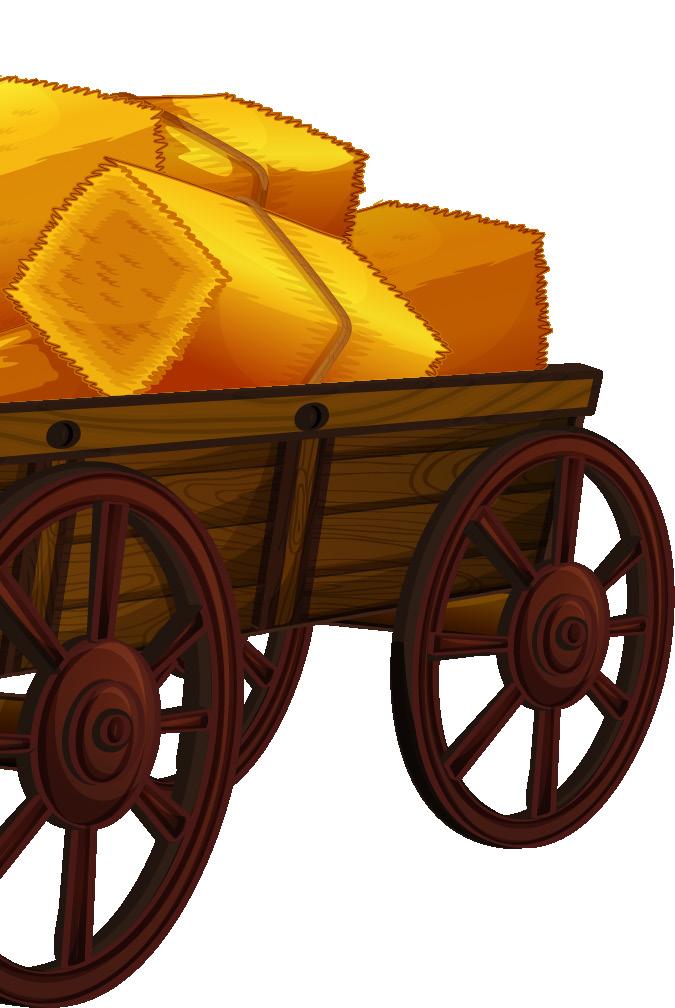
Maryam | 44
Once there were two brothers who inherited their father’s land. The two brothers divided the land in half and each one farmed his own section. Over time, the older brother married and had six children, while the younger brother never married.
One night, the younger brother lay awake; his thoughts kept him awake with concern. “It’s not fair that each of us has half the land to farm, my brother has six children to feed and I have none. He should have more grain than I do.”
That same night the younger brother went to his barn and gathered a large bundle of wheat. He climbed the hill that separated the two farms and over to his brother’s farm. He left the bundle of wheat in his brother’s barn. He returned home, feeling pleased with himself.
However, unbeknownst to him, earlier that very same night, the older brother was also lying awake. “It’s not fair that each of us has half the land to farm,” he thought. “In my old age my wife and I will have our grown children to take care of us, not to mention grandchildren, while my brother will probably have none. He should at least sell more grain from the felds now so he can provide for himself with dignity in his old age.”
So that night, too, he secretly gathered a large bundle of wheat and climbed the hill. He left the grain in his brother’s barn and returned home, feeling pleased with himself. The next morning, when the younger brother went into his barn, he was surprised to see the amount of grain was unchanged. “I must not have


Maryam | 45
taken as much wheat as I thought,” he said, puzzled. “Tonight, I’ll be sure to take more.” That very same moment, his older brother was also standing in his barn, thinking the very same.
After night fell, each brother gathered a greater amount of wheat from his barn, and secretly delivered it to his brother’s barn. The next morning, the brothers were again puzzled and perplexed. “There’s the same amount of grain here as there was before I cleared the pile for my brother. This is impossible! Tonight, I’ll make no mistake - I’ll take the pile down to the very foor. That way I’ll be sure the grain gets delivered to my brother.”


The third night, more determined than ever, each brother gathered a large pile of wheat from his barn, loaded it onto a cart, and slowly pulled his haul through the felds and up the hill to his brother’s barn. At the top of the hill, under the shadow of a moon, each brother noticed a fgure in the distance. Who could it be?
When the two brothers recognised the form of the other brother and the load he was pulling behind, they realised what had happened. Without a word, they dropped the ropes to their carts, and embraced.
The MOral Of this StOry: if you think of others, Allah will provide ways to induce generosity towards you in other people’s hearts.
Maryam | 46












 Hazrat Mirza Nasir Ahmad, Khalifatul Masih IIIrh
Maryam
Hazrat Mirza Nasir Ahmad, Khalifatul Masih IIIrh
Maryam


















































 By Naila Fowad
By Naila Fowad








